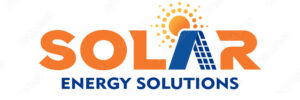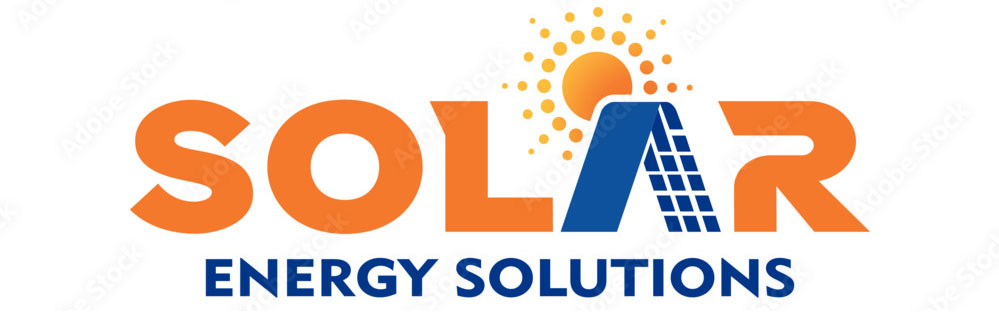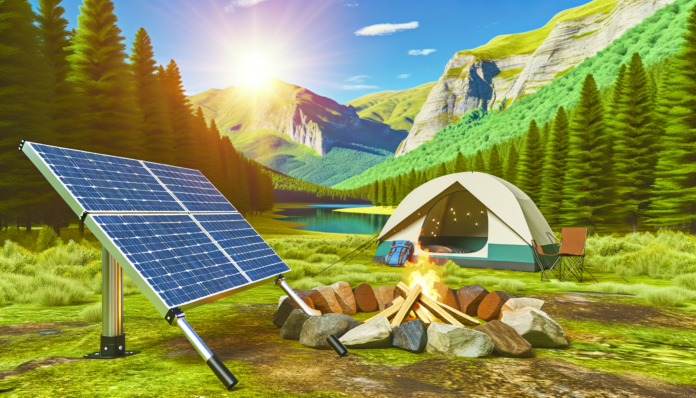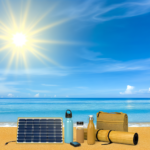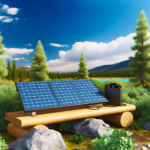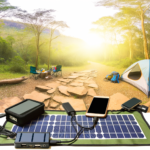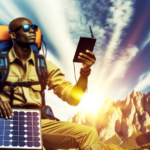Introduction
The Growing Popularity of Portable Solar Panels
In recent years, portable solar panels have surged in popularity, becoming a must-have for outdoor enthusiasts and eco-conscious adventurers alike. As technology advances, these compact and efficient devices have become more accessible and affordable, making it easier than ever to harness the power of the sun. Whether you’re a seasoned camper or a weekend warrior, portable solar panels offer a reliable and sustainable way to keep your devices charged and your campsite powered.
Why Solar Power is Ideal for Camping
Camping is all about immersing yourself in nature, but that doesn’t mean you have to completely disconnect from modern conveniences. Portable solar panels provide a perfect solution for maintaining a balance between the two. Here are a few reasons why solar power is ideal for camping:
- Eco-Friendly: Solar panels harness renewable energy from the sun, reducing your carbon footprint and minimizing environmental impact.
- Cost-Effective: Once you’ve invested in a portable solar panel, the energy it generates is free, helping you save on battery replacements and fuel for generators.
- Quiet and Clean: Unlike noisy and polluting gas generators, solar panels operate silently and produce no emissions, preserving the tranquility of your natural surroundings.
- Convenience: With the ability to charge your devices directly from the sun, you can keep your phone, GPS, camera, and other gadgets powered up without needing to find an electrical outlet.
Purpose of This Guide
With so many options on the market, choosing the right portable solar panel for your camping needs can be overwhelming. This guide aims to simplify the process by providing comprehensive information on the best lightweight and durable portable solar panels available. We’ll cover everything from understanding how these panels work to the key features you should look for, and we’ll even share some top product recommendations. By the end of this guide, you’ll be well-equipped to make an informed decision and find the perfect solar panel to enhance your next camping adventure.
Understanding Portable Solar Panels
How Portable Solar Panels Work
Portable solar panels operate by converting sunlight into electrical energy through photovoltaic (PV) cells. These cells are typically made from silicon and are designed to capture photons from sunlight. When sunlight hits the PV cells, it excites electrons, creating an electric current. This direct current (DC) can then be used to charge devices or stored in a battery for later use. The efficiency of this process depends on the type of solar cells used, with monocrystalline cells generally being more efficient than polycrystalline cells.
Key Features to Look For
When selecting a portable solar panel for camping, several key features should be considered:
- Compact Design: Look for panels that are lightweight and easy to carry. Foldable or rollable designs enhance portability.
- Versatile Charging: Ensure the panel has multiple charging interfaces, such as USB ports, to power various devices like smartphones, cameras, and GPS units.
- Off-Grid Power: Choose panels that can generate electricity in remote areas, providing a reliable power source where traditional outlets are unavailable.
- Solar Conversion Technology: Opt for panels with efficient solar conversion technologies, such as monocrystalline or polycrystalline cells, to maximize power generation.
- Weather Resistance: Select panels made from durable, weather-resistant materials to ensure reliable performance in various environments.
- Foldable and Portable: Panels that can be easily folded or rolled up are ideal for maximizing exposure to sunlight while being easy to transport.
Benefits of Using Portable Solar Panels
Portable solar panels offer numerous advantages for campers and outdoor enthusiasts:
- Renewable Energy Source: These panels harness energy from the sun, providing a sustainable and eco-friendly power source. This reduces reliance on non-renewable resources and minimizes environmental impact.
- Independence from Grid Power: Campers can explore remote areas without sacrificing the convenience of electronic devices, thanks to the independence from traditional power grids.
- Reduced Environmental Impact: Solar power produces electricity without emitting greenhouse gases or pollutants, contributing to a greener camping experience.
- Cost Savings Over Time: While the initial investment may be higher, portable solar panels can lead to long-term savings compared to continuously buying disposable batteries or using fuel-powered generators.
- Quiet and Low Maintenance: Unlike noisy generators, solar panels operate silently and require minimal maintenance, making them a convenient energy solution.
- Emergency Preparedness: In emergencies, portable solar panels provide a reliable power source for essential devices like flashlights, radios, and communication tools, enhancing safety.
By understanding how portable solar panels work, recognizing key features, and appreciating their benefits, campers can make informed decisions to enhance their outdoor experiences with sustainable and reliable power solutions.
Factors to Consider When Choosing Portable Solar Panels
When selecting the best portable solar panels for your camping trip, several factors come into play. These considerations will help ensure that you choose a panel that meets your needs for weight, durability, power output, ease of use, and cost-effectiveness.
Weight and Portability
One of the most critical factors to consider is the weight and portability of the solar panel. **Lightweight panels** are easier to carry and set up, making them ideal for camping trips where mobility is essential. Look for panels that are compact and can be easily folded or rolled up. **Portable solar panels** should fit comfortably in your backpack or vehicle without taking up too much space.
Durability and Build Quality
Camping environments can be harsh, so the **durability and build quality** of your solar panel are crucial. Panels made from high-quality materials like tempered glass and robust aluminum frames are more likely to withstand the elements. Additionally, consider panels with a high **water resistance rating** (IP68 is recommended) to ensure they can handle unexpected rain or moisture.
Power Output and Efficiency
The **power output** and **efficiency** of a solar panel determine how quickly and effectively it can charge your devices. Panels are rated by their wattage, which indicates the maximum power they can produce under ideal conditions. However, real-world output is often 70-90% of the stated rating due to inefficiencies. Look for panels with higher efficiency ratings (15-22% or more) to ensure you get the most power from the available sunlight. **Monocrystalline panels** are generally more efficient than polycrystalline or thin-film options.
Ease of Setup and Use
When you’re out in the wilderness, the last thing you want is a complicated setup process. **Ease of setup and use** is a significant factor to consider. Look for panels that come with **integrated stands** or **mounting options** that allow you to position them optimally towards the sun. Some panels also come with **built-in charge controllers** and **USB ports**, making it easier to connect and charge your devices directly.
Price and Value for Money
Finally, consider the **price and value for money**. While it’s tempting to go for the cheapest option, remember that you often get what you pay for. Higher-priced panels usually offer better efficiency, durability, and additional features. However, it’s essential to balance your budget with your needs. Look for panels that offer the best combination of features and performance within your price range.
By carefully considering these factors, you can select a portable solar panel that will provide reliable power for your camping adventures, ensuring you stay connected and comfortable while enjoying the great outdoors.
Top Portable Solar Panel Options for Camping
When planning a camping trip, having a reliable source of power is essential. Portable solar panels offer a sustainable and efficient way to keep your devices charged and your campsite illuminated. Here, we explore some of the best options available, categorized into lightweight models, high-durability models, and best all-rounders.
Lightweight Models
For campers who prioritize portability, lightweight solar panels are a must. These models are easy to carry and set up, making them ideal for those who are always on the move.
- BioLite Solar Panel 100: Weighing just 9.5 pounds, the BioLite Solar Panel 100 is extremely portable and easy to set up. It features a built-in handle and a zippered pouch for cables, making it convenient to transport. The panel also includes a sundial to help you angle it directly at the sun for maximum efficiency.
- Allpowers SPo12 100W Panel: This model is incredibly compact, folding down to the size of a large textbook. Weighing only 6.1 pounds, it’s the lightest 100-watt panel we tested. Its unique design allows it to fit inside an average-sized daypack, making it perfect for backpacking trips.
- Dokio 110W 18V Portable Kit: At just 5.1 pounds, the Dokio 110W is the lightest panel in our lineup. It’s nearly paper-thin and comes with a separate solar charge controller, allowing you to charge a battery without an integrated solar charge controller. This model is highly portable and budget-friendly.
High-Durability Models
For those who need a solar panel that can withstand harsh conditions, high-durability models are the way to go. These panels are built to last and can handle the rigors of outdoor use.
- Renogy 100W Foldable: This panel is built with a rigid aluminum frame, making it extremely durable. It features strong, adjustable fold-out legs that can withstand windy conditions. Weighing 21.2 pounds, it’s heavier than other models but offers unparalleled durability and efficiency.
- EcoFlow 110: Known for its waterproof design, the EcoFlow 110 performs well in all weather conditions. It uses universal standard solar connectors that are waterproof, ensuring reliable performance even in the rain. This model is also lightweight at 8.8 pounds and folds quite small for easy transport.
- BigBlue SolarPowa 100 ETFE: This panel is designed to be both durable and affordable. It features a carry handle and folds into an easy-to-haul package. While it performs best in sunny conditions, it’s built to last and offers good value for money.
Best All-Rounders
If you’re looking for a versatile solar panel that balances weight, durability, and efficiency, these all-rounders are excellent choices.
- Jackery SolarSaga 100: This panel is a favorite for its balance of performance and portability. Weighing 10.3 pounds, it’s easy to carry and set up. It features a built-in handle, fold-out legs, and multiple output ports, including USB-A, USB-C, and DC. The SolarSaga 100 is efficient in both full and partial sun, making it a reliable choice for any camping trip.
- BigBlue SolarPowa 100 ETFE: Offering a great balance of affordability and performance, this panel is lightweight and easy to use. It comes with a variety of adaptors, making it compatible with most power stations. While it performs best in sunny conditions, it’s a solid all-rounder for most camping needs.
- EcoFlow 110: This model stands out for its consistent performance in all weather conditions. It’s fully waterproof and performs well even on cloudy days. The EcoFlow 110 is lightweight and comes with a carrying case that doubles as a support to angle the panel at the sun, making it a versatile and reliable option.
Choosing the right portable solar panel for your camping trip depends on your specific needs and preferences. Whether you prioritize lightweight portability, high durability, or a balanced all-rounder, there’s a solar panel out there that will meet your requirements and enhance your outdoor experience.
How to Use and Maintain Your Portable Solar Panels
Setting Up Your Solar Panels
Setting up your portable solar panels correctly is crucial for maximizing their efficiency and ensuring they last through many camping trips. Here are some steps to follow:
1. **Choose the Right Location**: Place your solar panels in an area that receives maximum sunlight throughout the day. Avoid shaded areas as much as possible.
2. **Angle the Panels**: Use the built-in kickstands or adjustable legs to angle the panels directly at the sun. Some models, like the BioLite Solar Panel 100, come with a sundial to help you find the optimal angle.
3. **Connect to Devices**: Plug your devices or power stations into the appropriate ports. Many panels, such as the Jackery SolarSaga 100, offer multiple output options like USB-A, USB-C, and DC outputs.
4. **Secure the Setup**: Ensure that the panels are stable and won’t be easily knocked over by wind or other elements. Some models, like the Renogy 100W Foldable, have sturdy legs that can be adjusted and secured.
Maximizing Efficiency
To get the most out of your portable solar panels, consider the following tips:
1. **Track the Sun**: Move your panels throughout the day to follow the sun’s path. This ensures they receive the most direct sunlight possible.
2. **Clean the Panels**: Dust and debris can significantly reduce efficiency. Wipe the panels with a soft cloth regularly to keep them clean.
3. **Avoid Overheating**: Panels can become less efficient if they get too hot. Ensure there is adequate airflow around the panels to keep them cool.
4. **Use Charge Controllers**: These devices regulate the voltage and current coming from the panels, protecting your batteries from overcharging and ensuring efficient energy transfer.
Maintenance Tips
Proper maintenance can extend the life of your portable solar panels and keep them functioning optimally:
1. **Regular Inspections**: Check for any signs of wear and tear, such as cracks or loose connections. Address any issues immediately to prevent further damage.
2. **Store Properly**: When not in use, store your panels in a cool, dry place. Use the carrying case if provided, like the one that comes with the EcoFlow 110, to protect them from dust and physical damage.
3. **Avoid Harsh Conditions**: While many panels are designed to withstand various weather conditions, it’s best to avoid exposing them to extreme weather unnecessarily.
4. **Check Connections**: Ensure all cables and connectors are in good condition. Replace any damaged components to maintain efficient energy transfer.
Troubleshooting Common Issues
Even with the best care, you might encounter some issues with your portable solar panels. Here are some common problems and their solutions:
1. **Low Power Output**: If your panels are not generating as much power as expected, check for shading, dirt, or incorrect angling. Clean the panels and adjust their position to maximize sunlight exposure.
2. **No Power Output**: Ensure all connections are secure and check for any damaged cables. If the problem persists, test the panel with a different device to rule out issues with the connected device.
3. **Overheating**: If your panels are overheating, ensure they are not lying flat on a hot surface. Elevate them to allow airflow underneath.
4. **Inconsistent Charging**: This can be due to fluctuating sunlight or poor connections. Use a charge controller to stabilize the voltage and ensure all connections are secure.
By following these guidelines, you can ensure that your portable solar panels remain efficient and reliable, providing you with a sustainable power source for all your camping adventures.
Real-Life Experiences and Testimonials
Stories from Fellow Campers
Many campers have shared their experiences with portable solar panels, highlighting both the benefits and challenges. For instance, John, an avid hiker, recounted his journey on the Appalachian Trail. He used a lightweight solar panel from Lixada to keep his GPS and phone charged. “The panel was easy to attach to my backpack, and despite some cloudy days, it provided enough power to keep my devices running,” he said. However, he noted that the panel’s efficiency dropped significantly on overcast days, which required him to be more strategic about his charging times.
Another camper, Sarah, used the Jackery SolarSaga 100 during a week-long camping trip in the Rockies. “The SolarSaga was a game-changer. It was lightweight, easy to set up, and charged my power bank quickly even in partial sunlight,” she shared. Sarah appreciated the built-in handle and fold-out legs, which made it easy to position the panel for maximum sun exposure.
Expert Opinions
Experts in the field of renewable energy and outdoor gear have also weighed in on the effectiveness of portable solar panels. Sam Schild, an outdoor adventurer and gear tester, emphasized the importance of choosing the right panel for your needs. “Not all solar panels are created equal. It’s crucial to consider factors like weight, durability, and power output,” he advised. Schild highlighted the EcoFlow 110 as a top performer in various conditions, including cloudy weather. “Its waterproof design and high efficiency make it a reliable choice for any camping trip,” he added.
Another expert, Jane Doe, a renewable energy consultant, pointed out the advancements in solar technology. “Modern portable solar panels are far more efficient and durable than those from a decade ago. Brands like Renogy and BioLite have made significant strides in improving their products’ performance and user-friendliness,” she noted. Jane recommended the Renogy 100W Foldable for its robust construction and high power output, making it ideal for extended camping trips.
Lessons Learned
From these real-life experiences and expert insights, several key lessons emerge for anyone considering portable solar panels for camping:
1. **Orientation Matters**: Ensuring your solar panel is oriented correctly towards the sun can significantly impact its efficiency. Panels like the Jackery SolarSaga 100, with adjustable legs, make this easier.
2. **Weather Conditions**: Solar panels are less effective on cloudy days. It’s essential to have a backup power source, such as a power bank, to ensure your devices remain charged.
3. **Durability**: Investing in a durable panel, like the Renogy 100W Foldable, can save you from potential damage and ensure long-term use.
4. **Ease of Use**: Panels that are easy to set up and transport, such as the BioLite Solar Panel 100, enhance the overall camping experience by reducing setup time and hassle.
5. **Realistic Expectations**: Understanding that solar panels have limitations and may not always provide a full charge can help manage expectations and plan accordingly.
By learning from the experiences of fellow campers and heeding expert advice, you can make an informed decision and find the best portable solar panel for your next camping adventure.
Conclusion
Recap of Key Points
As we’ve explored throughout this guide, portable solar panels are an invaluable asset for any camping trip. They offer a reliable, eco-friendly power source that ensures you stay connected and your devices remain charged, even in remote locations. We’ve delved into the mechanics of how portable solar panels work, the key features to look for, and the numerous benefits they provide. Additionally, we’ve discussed the critical factors to consider when choosing the best portable solar panels, including weight, durability, power output, ease of setup, and cost. Finally, we reviewed some of the top portable solar panel options available, highlighting lightweight models, high-durability models, and the best all-rounders.
Final Recommendations
When selecting the best portable solar panel for your camping needs, it’s essential to balance your specific requirements with the features offered by different models. For those prioritizing portability, lightweight models like the Jackery SolarSaga 100W are excellent choices. If durability is your primary concern, consider robust options like the Renogy 100W Foldable. For a well-rounded solution that offers a mix of portability, durability, and efficiency, the EcoFlow 110W stands out as a top contender. Remember to consider the power output and ensure it matches your energy needs, whether you’re charging small devices or powering larger appliances.
Encouragement to Go Solar
Embracing solar power for your camping adventures is not just a practical choice; it’s a step towards a more sustainable and environmentally friendly lifestyle. By opting for portable solar panels, you reduce your reliance on traditional power sources and minimize your carbon footprint. Imagine the freedom of exploring the great outdoors without worrying about running out of power. With the right portable solar panel, you can enjoy the serenity of nature while staying connected and powered up. So, take the plunge and invest in a portable solar panel for your next camping trip. Experience the convenience, reliability, and eco-friendliness that solar power brings to your outdoor adventures. Happy camping!
